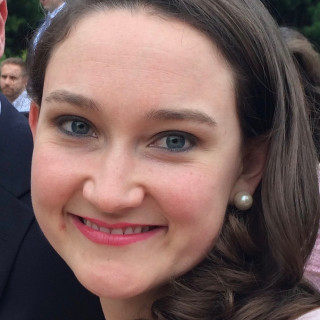
“Being a doctor is hard. It’s harder for women.” This was the title of a recent piece by Dr. Dhruv Khullar in the New York Times in which he discussed a JAMA article by Dr. Constance Guille et al. In the article, he pointed out that female physicians experience more “work-family conflict” because they are responsible for more household duties. Unfortunately, both articles failed to consider the disproportionate rate at which female resident doctors and physicians are subject to discrimination, sexual harassment, and workplace abuse (1, 2, 3).
Graduating medical school, the thing I feared most about residency was the physical toll it would take. I had never stayed up for 28 hours straight. Would I be able to do those shifts every second and third night and still think clearly? After all, I was about to have patients’ lives in my hands.
Little did I know was that it wouldn’t be the 28-hour call shifts, the 12-hour surgeries, skipping meals, the birthday parties I would miss, or even the academic rigor that would be difficult. What was difficult was grappling with the mountain of misogyny I would encounter in a system that has little to no recourse for victims of abuse, harassment, or retaliation.
Carol Bernstein, MD, co-chair of the Accreditation Council for Graduate Medical Education (ACGME) Task Force on Physician Well-Being, wrote a piece in the fall of 2017 entitled “Suicides of young physicians raise alarm about burnout among trainees.” There have been many articles about physician burnout in the past several years. As we look for solutions to burnout and examine its possible causes, when it comes to women in medicine, we may do well to consider a culture of sexual harassment and abuse, particularly in medical residency and particularly toward women in male-dominated medical specialties. To halt burnout, the attrition of brilliant minds, and suicides, let us also focus on stopping this abuse.
The ACGME has put forth guidelines in recent years with vague statements encouraging wellness in residency programs. Unfortunately, it is the prerogative of each individual program to enforce those guidelines. If they choose not to, residents have very little recourse. What little recourse they are able to take_—filing a formal complaint with the ACGME and putting their fellow residents’ careers at risk—_sends them down an often-retaliatory rabbit hole that may end in termination from the residency program.
Attendings can very easily end careers. With unchecked power, power that the ACGME allows, an attending can swiftly blackball a resident from the program for any misstep, misunderstanding, or plain antipathy. I am personally aware of several scenarios where a female resident was sexually harassed or assaulted by her program director or attendings. When these women, who all wish to remain anonymous for fear of further retaliation, complained to officials at their institutions, each one was dismissed from her program due to “lack of professionalism.” With no help from the ACGME, their only recourse was legal action. Several pursued law suits and ultimately won or settled, but some did not have the financial resources to fight a legal battle, as the average cost of this type of litigation ranges from $200,000_—_$500,000. With no autonomy or recourse, is it any wonder that residents are “burning out” and killing themselves?
Residency education in the United States is harming medical residents. This is clear from the results of the above-referenced JAMA article reporting that depression scores go up for all residents after just six months of residency. Approximately one-third of depressed residents will seriously think about killing themselves, and too many will actually succeed. Indeed, male and female physicians are 1.41 and 2.27 times, respectively, more likely to commit suicide than their counterparts in the general population.
As a recent resident myself, I have always been bewildered by the dichotomy of care in our field. We, as physicians, are expected to always put patients first. At the same time, we are expected to put ourselves last. Mention “self-care” and you will get a medley of eye-rolls, scoffs, and chuckles. Try to implement self-care, and you might just get kicked out of your residency program. Stand up for yourself by reporting harassment or assault on the part of your attendings, and the odds of being kicked out increase exponentially. Four years of undergrad, four years of medical school, research years, and three to seven years of residency down the drain_—_leaving you without a career and hundreds of thousands of dollars in debt. No wonder medical residents, especially female residents, are depressed. And as you’re reading this, you might understand how someone might want to take their own life rather than suffer the continual abuse, or worse, the consequences of standing up for oneself.
Yes, being a doctor is hard, and it’s harder for women. But not just because of “work-family conflict.” Until the unrestrained power of residency program directors and attendings is tempered by the ACGME, sexual harassment, abuse, and retaliation toward female residents will persist. So will the ruined lives and suicides.

Whitney James, MD, MHS, practices neurosurgery in Arizona. She is a mom, wife, lover of people and lover of life. She is a Doximity Scholar and founder of Girl Neurosurgeon (link: www.girlneurosurgeon.com)_—_an online forum that promotes egalitarianism and equanimity in medicine and beyond.







